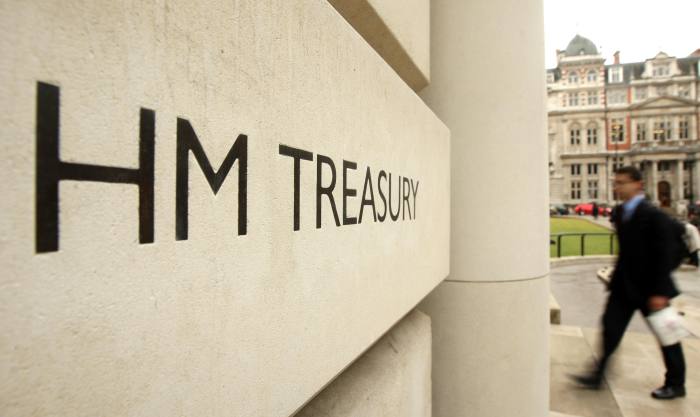
An adviser body has called for fines collected by the financial regulator to be used to help alleviate the cost of the Financial Services Compensation Scheme on the industry, rather than diverting them to HM Treasury.
Derek Bradley, chief executive of Panacea Adviser, said he was "absolutely appalled" to learn the entirety of the £45.5m fine imposed on the Bank of Scotland by the Financial Conduct Authority last month will go to the Treasury.
In June the Financial Conduct Authority fined the bank for failing to report suspicions of fraud in its Reading branch in 2007, which led to total losses of £245m.
The fraud took place in the Impaired Assets Team of Halifax Bank of Scotland, where its then-director, Lynden Scourfield, had been sanctioning limits and additional lending facilities "beyond the scope of his authority undetected for at least three years".
As a result of agreeing to resolve the matter with the FCA the Bank of Scotland had its fine reduced from £65m, with the regulator also banning four individuals from working in financial services for their role in the fraud.
In response to a Freedom of Information request submitted by Panacea Adviser, the FCA confirmed the £45.5m will be paid in full to the Treasury this month.
The regulator said: "The FCA pays to HM Treasury its penalty receipts after deducting its enforcement costs every year.
"The FCA has already retained sufficient penalties to cover its 2019/20 budgeted enforcement costs in the current year and will therefore pay the £45.5m in full to HM Treasury in July 2019."
In 2012 the government changed the rules governing penalties imposed by the FCA, so that revenue from fines against banks and other financial services firms no longer went to the industry but rather to the Treasury.
But Mr Bradley argued the fine against the Bank of Scotland should be used to contribute towards the FSCS instead.
He said: "I have felt very strongly for a long period of time that fines that are supposed to be used to offset the cost of regulation should not be going towards the Treasury in their entirety."
The FCA has imposed fines totalling £319,172,287 against individuals and companies so far in 2019, including a £76m penalty against the former chief executive of failed investment firm Keydata.
This was after in November 2018 the Upper Tribunal upheld the FCA's regulatory action against Stewart Ford and former Keydata sales director Mark Owen, ruling both had acted without integrity when the firm collapsed in 2009 at a cost of hundreds of millions of pounds to the industry.
As a result Ford was given 16 days to pay his £76m fine in January this year.
Action taken by the regulator this year also included a £34.3m fine against Goldman Sachs International for breaching the FCA's transaction reporting rules under the Markets in Financial Instruments Directive.
In 2018 the City-watchdog collected significantly less in fines against the industry, with penalties totalling £60,467,212.
The biggest of these was a £32.8m fine handed to Santander in December 2018 for failing to effectively process the accounts and investments of deceased customers.





